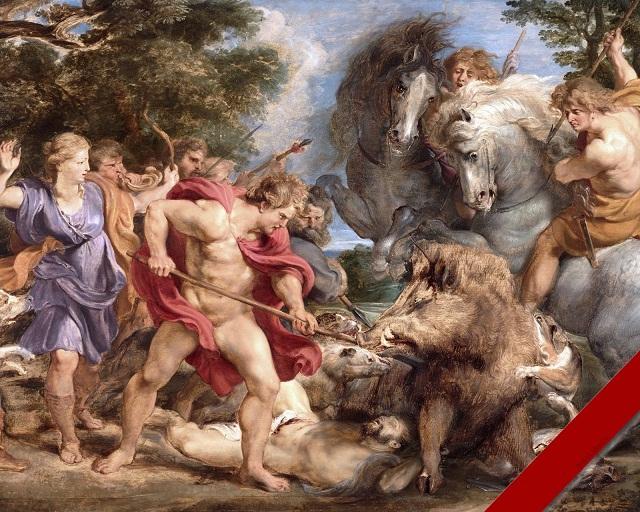|
I consider this play impossible to be read in a modern feminist context, not because of controversial gender issues, but because the modern shift towards gender equality negates any sort of tension to the plot. Aristotle held that a tragedy's most important component is the reversal of fortune of a hero who has one hamartia, or fatal flaw. In the original context, Meleager's flaw is his passion for Atalanta, a huntress who he invites on the hunt of the Calydonian boar. Because she draws first blood, he gives her the hide of the boar, angering his uncles whom he eventually kills. As a result, his mother in anger, retaliates and kills Meleager. The problem is that in a modern context, it's hard to find a flaw in Meleager's decision. Even if he is overcome by passion for Atalanta, his only action is to give her a present that by all counts she deserves. This brings the play closer to the realm of melodrama, where the main protagonists have no flaws and are preyed upon by purely evil people. Without outdated gender roles, Meleager has no harmartia, and therefore as Aristotle would say, there is no pity in his reversal of fortune but instead outrage at the injustice inherent in the story. That is not to stay that injustice has no place in drama, but simply that Renaissance tragedy tries to emulate the Greek style in which good people are rewarded and bad people are punished because that is in concurrence with the laws of nature. In this way, Méléagre fails in the goals it set out for itself.
0 Comments
Leave a Reply. |
Jennifer KellettM.A. French Literature Florida State University Archives
June 2021
Categories |
Photos used under Creative Commons from mharrsch, Renaud Camus

 RSS Feed
RSS Feed
